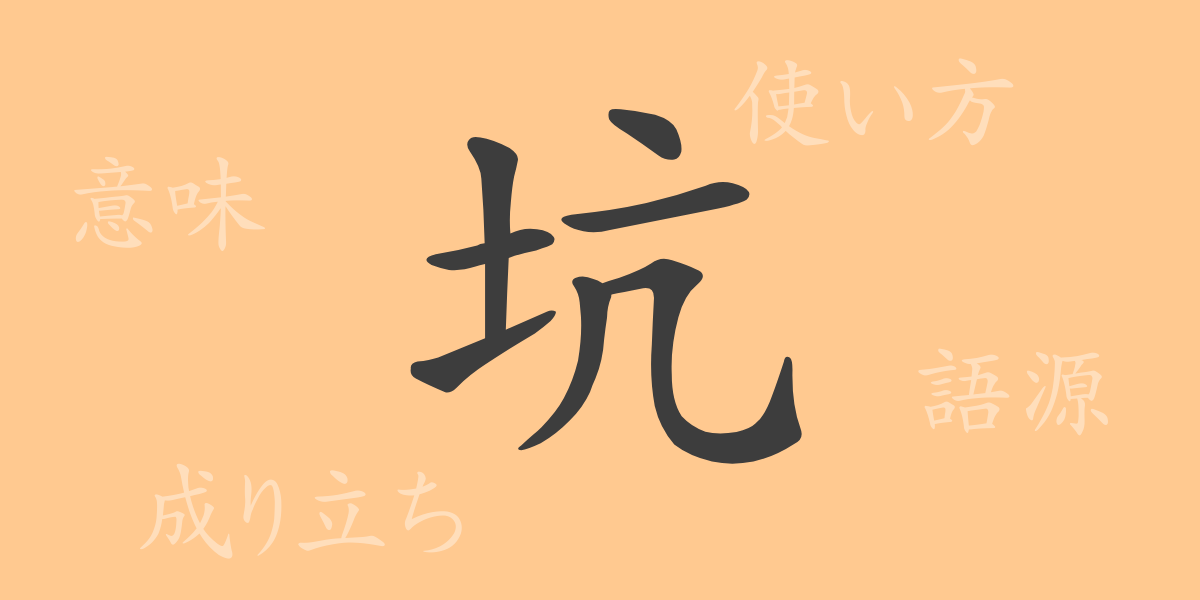常用漢字 in Japanese are indispensable in daily life. Among them, “坑(こう)” is known as a kanji used in specific fields and situations. This article will provide a detailed explanation of the origins, meanings, usages, readings, and related idioms and phrases of “坑(こう).” Let’s explore the world of “坑(こう)” while appreciating the depth of the Japanese language.
Origins of 坑(こう)
The kanji “坑(こう)” is structured by combining the radical for “hole,” 穴(あな), with the component 勹(つつみがまえ), which signifies labor or hardship. This combination gives the meaning “to dig the ground and endure hardships,” and it is mainly used to refer to places or situations related to mining or digging operations.
Meanings and Usages of 坑(こう)
“坑(こう)” refers to underground excavations, such as holes or tunnels, used for mining. Additionally, it can be used metaphorically to describe situations of significant difficulty or hardship. For example, a company facing severe financial difficulties could be described as being in an “経営の坑(けいえいのこう),” meaning “a management pit.”
Readings, Stroke Count, and Radical of 坑(こう)
Here are the basic details about the kanji “坑(こう).”
- Readings: The on-yomi (Chinese reading) is “コウ(こう),” and there is no kun-yomi (Japanese reading).
- Stroke Count: 7 strokes
- Radical: 土(つちへん, tsuchi-hen, meaning “earth”)
Idioms, Phrases, and Proverbs Using 坑(こう)
While not many idioms or phrases contain “坑(こう),” here are a few examples:
- 坑道(こうどう): A tunnel or passage dug underground, used for mining operations.
- 坑夫(こうふ): A laborer who works in a mine.
- 坑井(こうせい): The entrance to a mine shaft or a well dug for mining purposes.
Conclusion on 坑(こう)
The kanji “坑(こう)” carries deep meanings related to mining and excavation, which may not be immediately apparent from its appearance. Though it is often used in specific contexts, understanding its applications allows us to appreciate the cultural and historical background of the words. Through this explanation, we hope you have gained an understanding of the unique world of “坑(こう)” and rediscovered the richness of the Japanese language.

























